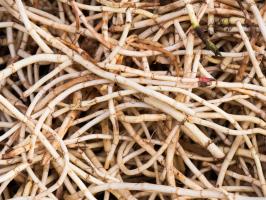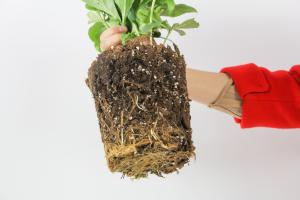Introduction
Cats are known to be curious creatures and they have a penchant for exploring their surroundings. However, sometimes their curiosity can lead them to engage in habits that can be destructive to your household belongings, such as eating your pot plants. In this article, we will explore some of the reasons why cats eat pot plants and what you can do to prevent this behavior.
Nutritional Deficiencies
One possible reason why your cat is eating your pot plants could be due to nutritional deficiencies. Cats are obligate carnivores, which means they require a diet that is high in protein and other essential nutrients. If your cat’s diet is lacking in essential nutrients, they may be seeking out alternative sources of nutrition. Eating pot plants can provide cats with roughage and certain vitamins and minerals that may not be present in their standard diet.
Boredom and Stress
Cats are also known to engage in destructive behavior when they are bored or stressed. If your cat is not getting enough stimulation or exercise, they may turn to your pot plants as a source of entertainment. Similarly, if your cat is experiencing anxiety or stress, they may seek out destructive behaviors to alleviate their discomfort. In this case, it is important to provide your cat with plenty of toys and playtime to keep them entertained and mentally stimulated.
Toxicity of the Plants
Another reason why your cat may be eating your pot plants is because they are toxic. Many common indoor plants, such as lilies, ivy, and peace lilies, are toxic to cats and can cause a range of health issues from vomiting and diarrhea to kidney failure and death. If you suspect that your cat has ingested a toxic plant, you should seek veterinary treatment immediately.
Preventing the Behavior
If you want to prevent your cat from eating your pot plants, there are several strategies you can use. Firstly, you should consider providing your cat with plenty of nutritious and well-balanced meals to ensure they are not seeking out alternative sources of nutrition. Secondly, you should ensure that your cat has plenty of toys and playtime to keep them mentally stimulated and prevent boredom-related destructive behavior. Finally, you should ensure that any toxic plants are kept out of your cat’s reach, and consider using deterrents such as bitter sprays or physical barriers to prevent them from accessing the plants.
Conclusion
Cats are curious creatures, and sometimes this can lead to destructive behaviors such as eating pot plants. However, by understanding the reasons why cats engage in this behavior, and taking steps to prevent it, you can ensure that your cat remains healthy and happy while also protecting your household belongings.

 how many times do yo...
how many times do yo... how many planted tre...
how many planted tre... how many pine trees ...
how many pine trees ... how many pecan trees...
how many pecan trees... how many plants comp...
how many plants comp... how many plants can ...
how many plants can ... how many plants and ...
how many plants and ... how many pepper plan...
how many pepper plan...

































